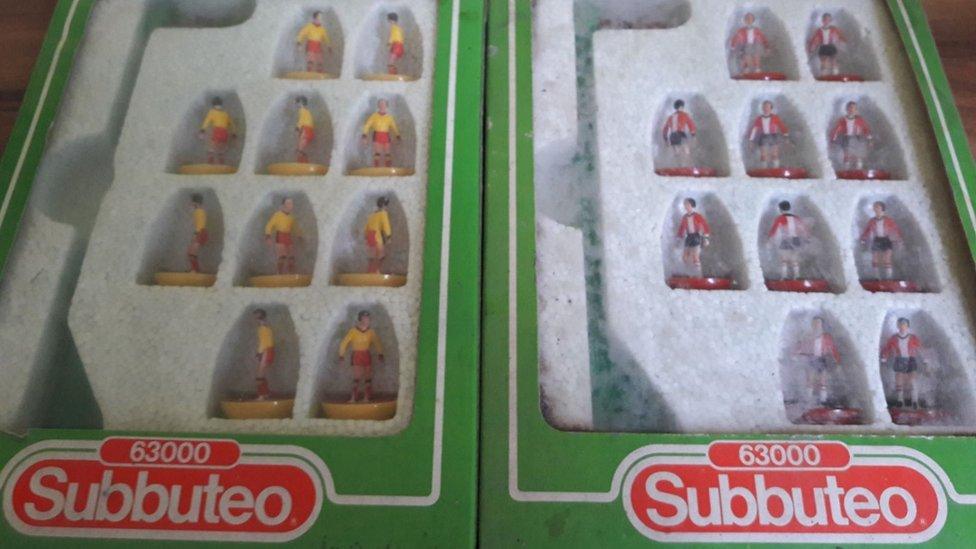Joe Barrett's 100-year-old IRA archive found in attic
- Published
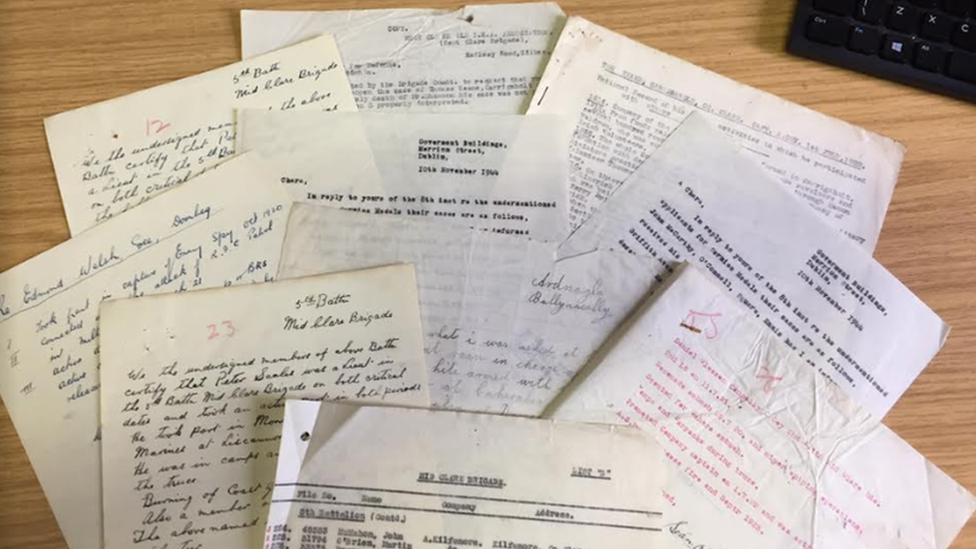
Just some of more than 2,000 documents IRA documents found in the attic
A century-old archive of IRA documents, detailing secret operations from the 1916 Easter Rising through to the Irish Civil War, has been found in an attic.
The collection belonged to Joe Barrett, a former IRA commander in County Clare who died aged in his 80s in 1971.
The papers were discovered in suitcases in the attic of his former family home in Kilrush, County Clare, when the building was cleared out for sale.
The archive almost ended up in a skip until historians stepped in to save it.
The collection of more than 2,000 documents includes lists of IRA members, secret code words, maps showing how attacks were planned and instructions on potential assassination targets.
It gives a rare insight into the internal workings of the secretive organisation in the lead up to and immediate aftermath of the partition of Ireland.
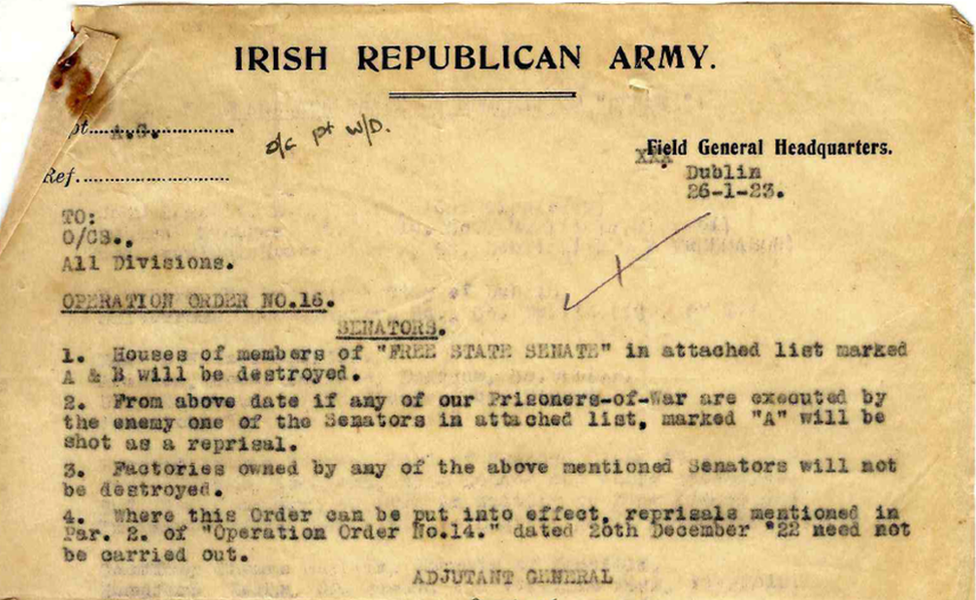
In 1923, the IRA plotted to kill members of the new parliament if its prisoners were executed
However, the Barretts were not even aware of the existence of the collection when they called in the Kilrush and District Historical Society to help clear the house last year.
The property was already of historical interest because, for years, the Barretts ran an auctioneering business from their home in Moore Street.
"A family member who was selling the house invited us in to take anything we'd like from it," explained historian and society member, Paul O'Brien.
"We figured it was going to be a very valuable and interesting auctioneering archive related to land in west Clare, that was all we expected."
One of the last places they checked was the attic, where they found about 12 old suitcases and trunks containing boxes of papers.
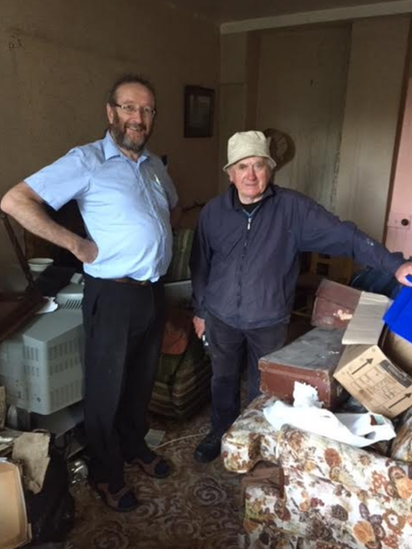
Paddy Waldron and Michael O'Connell of KDHS found the papers in the Barrett family home
"When we opened them, we couldn't believe what we'd found," Mr O'Brien recalled.
"In the boxes were literally hundreds and hundreds of documents, maps, photographs, medals, an army cap, a ceremonial dagger - all related to the period circa 1916 through to 1925 or thereabouts."
Mr O'Brien, who is an academic at the University of Limerick's Mary Immaculate College, spent months examining the papers.
He has established that Joe Barrett was born in 1888, the eldest of 16 children, into a family steeped in republicanism.
By day, Barrett was a rate collector, but by the age of 20 he joined the Irish Republican Brotherhood (IRB).
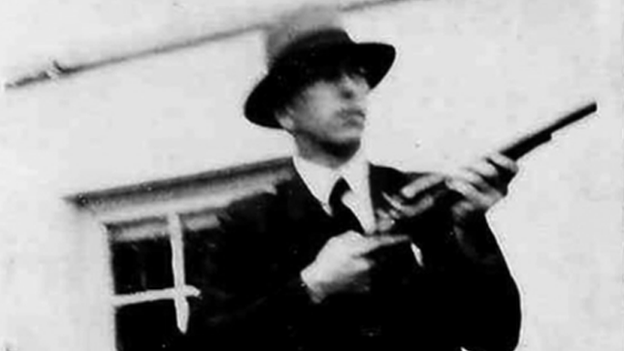
Joe Barrett got involved in armed republicanism when he was 20
The IRB, like the later IRA, was a secretive group which used violence in an attempt to achieve independence from Britain.
By 1916, the year of the Easter Rising, Barrett was captain in the IRB and assembled 30 men to join the rebellion, but poor communications meant they and many others did not take part.
But he did fight in the War of Independence (1919-1921) as a commander in the IRA's Mid Clare Brigade.
In 1955, Barrett gave a statement to the Irish Bureau of Military History, external describing his involvement in several IRA attacks.
In it, he also acknowledged his enemies' courage: "To give the old RIC [Royal Irish Constabulary] their due, I must say that, where we met them in a fight, there were no braver men."
'Chilling'
The statements were used by former IRA members to claim military pensions from the Irish state.
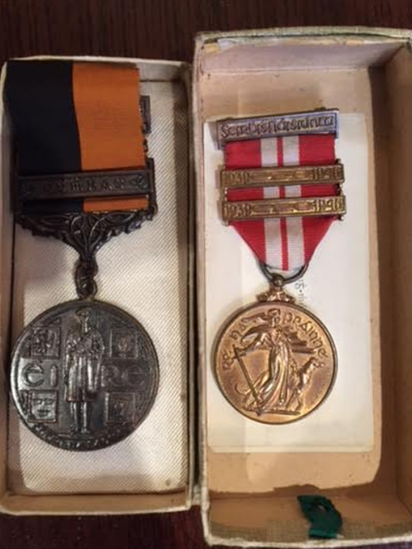
IRA medals found in the collection were returned to the family
Several of the attic documents relate to pension claims, but others expose IRA planning in "minute detail," including one describing an ambush in Clare.
"They staked out the RIC barracks for a number of days, hoping to attack it," Mr O'Brien explains.
"They discovered two things in their way - one was a gravel path around the barracks and the other was a dog.
"So, very early in the morning, when one of the constables went out to get a pint of milk, in their own euphemistic language they 'took care of the dog'.
"They put their socks over their shoes and walked down the gravel path, unheard, to attack the barracks."
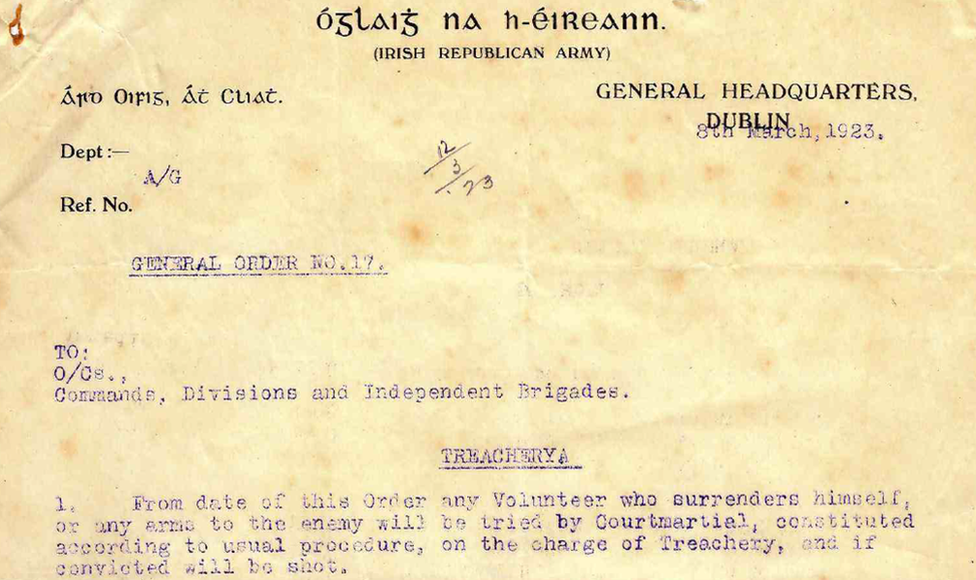
The IRA sent out typed warnings that members who became informers would be shot
It is not believed anyone was killed in that ambush, except perhaps the unfortunate dog.
Other documents refer to the Civil War (1922-1923) and include IRA plots against those who supported the treaty which partitioned Ireland.
"That's particularly chilling because they have all the details, such as which clubs they were members of, where they lived, etc," the historian says.
"They really had an enormous amount of detail on these particular men."
The IRA also killed many of its own members for leaking information, so whether it would have approved of Barrett's archive is in doubt.
"Some of the material is marked 'To be destroyed after use'. Obviously, Barrett didn't destroy it, he kept it," Mr O'Brien says.
But a century later, the re-emergence of documents which once might have led to arrest or murder, are shedding new light on a tumultuous period in history.
The historical society plans to digitise the records and make them available online as a public resource.
- Published11 February 2018
